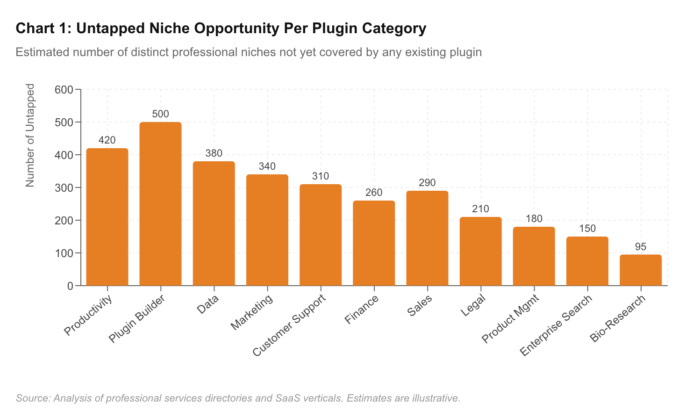Expensive daily commute: The Great Train Robbery costs £265.20.
Why are people putting up with poor services despite paying high ticket prices?

According to Metro, many commuters have expressed feeling "demonized" for not living in London. One such commuter, Johnbosco Nwogbo, has had a particularly frustrating experience with train travel in the UK. After his journey from Oxford to Bournemouth was unexpectedly cancelled, causing him to miss a conference he was scheduled to speak at, Johnbosco spoke to Metro about his dissatisfaction as a passenger. "Rail is the engine of the economy and it's simply not working," he stated, emphasizing the impact of unreliable and expensive train services on the overall economy.
And Johnbosco is not alone in his frustration. A YouGov poll showed that less than half of Brits are satisfied with the UK rail service. It's no surprise, considering the uncomfortable conditions on many trains - from being crammed in with other passengers to dealing with high costs and unreliable schedules. Chris Sedgwick, a former commuter who now runs his own PR agency, knows this struggle all too well. "It's beyond frustrating," he tells Metro. "It's like commuters are being demonized or victimized for living outside of London. The cost, with the delays and cancellations, is unjustifiable in my opinion."
For Chris and other Great Western Railway users in Gloucester, a round-trip ticket to London can cost up to £265.20. This hefty price tag can make it difficult for individuals to pursue job opportunities in the city, with some feeling that they are being priced out of certain roles. Chris often used social media to document his peak-time journeys, which could cost upwards of £200. "In a previous job, my commute worked out to be around £30,000 a year," he shared. "It wasn't sustainable and ultimately, it was why that job ended."
Unfortunately, the cost of commuting continues to rise at a rate 3% faster than inflation. This means that the average worker spends £2,616 every year just to get to and from work. And despite the high price, the Office of Rail and Road Travel reported 5.7 million late trains and 74,494 cancellations between April 1 and June 30 in 2023. It's no wonder that passengers are feeling frustrated and let down by the UK rail service.
For Lesley Thomas, a money and mindset coach, the frustration goes beyond just the cost and delays. She has witnessed firsthand the dehumanizing effects of overcrowded trains, often seeing passengers "herded like cattle." In one particularly heart-wrenching incident, Lesley saw an older disabled man fall to the ground after being forced to stand on a packed train. "I've been travelling on trains for 34 years and they used to be cleaner, more reliable and far more comfortable," she shared. "Now, I've been in situations where I've had to stand on a busy train and have had men rubbing up against me. It's really uncomfortable."
Lesley's experience is not unique, as many passengers have had to deal with uncomfortable and even unsafe situations due to overcrowded trains. This, coupled with the high cost and frequent delays, has left many feeling frustrated and let down by the UK rail service. "Privatization was meant to make things better for customers, but it hasn't," Lesley concluded. "It's made things substantially worse."
Numerous commuters have expressed their frustration to Metro about being constantly criticized for not living in London. One such commuter, Johnbosco Nwogbo, has reached his breaking point with the state of train travel in the UK. After his recent journey from Oxford to Bournemouth was abruptly cancelled, causing him to miss an important conference, Johnbosco shared his discontent with Metro. "Rail is the engine of the economy and it's simply not working," the 35-year-old told us.
He continued, "There are millions of people across the UK who commute in some way. And if they can't get to work because it's too expensive or there's no guarantee they'll actually get to their destination, the economy suffers. It's a domino effect." Johnbosco is not alone in his dissatisfaction with the UK rail service. According to a YouGov poll, less than half of Brits say they are satisfied with it.
And it's no surprise. With cramped trains, bulky luggage, and commuters even working on the floor due to lack of seating, it's easy to become more than a little uncomfortable on a busy train in Britain. And that's not to mention the exorbitant fares and unreliable service. Originally from Nigeria, Johnbosco is part of a group called We Own It, which advocates for public services to be "for people, not profit." He describes England's train system as "expensive, overcrowded, and unreliable."
Chris Sedgwick, a 37-year-old PR agency owner, is another weary passenger who frequently travels into London from Gloucester. He tells Metro, "It's beyond frustrating. It's like commuters are being demonised or victimised for living outside of London. The cost, combined with the delays and cancellations, is unjustifiable in my opinion." Chris explains that he is lucky to be hired by companies based on his ability rather than his location, but he knows that many others are not as fortunate. "It's so unfair that train prices can be so extortionate that they're almost pricing people out of the roles they want," he says.
For Chris, and other Great Western Railway users in Gloucester, an "anytime return" ticket for the 1 hour 40 minute journey into London can cost up to £265.20. He often uses social media to document his journeys, which can cost upwards of £200 during peak times. "In a previous job, my commute worked out to be around £30,000 a year," Chris reveals. "I got my contract changed so I could come in slightly later [during off-peak times] which brought the cost down to £90 a day. The journey was such an issue that it made my relationship with my boss feel fraught. Ultimately, the whole travel situation was why that job ended – it wasn't sustainable. Even when I reduced my number of days in the office and managed to change the timings slightly, I was still spending about £13,000 of my salary on transport."
Unfortunately, commuting costs are only rising, with the average worker now spending £2,616 every year. Yet, despite the high price tag, the Office of Rail and Road Travel reports 5.7 million late trains and 74,494 cancellations between April 1 and June 30, 2023. On longer and more expensive train journeys, we've seen children squeezed into baggage compartments, angry passengers protesting on the tracks after delays, and signs stuck to chairs in carriages.
"The railways have de-humanised people," says Lesley Thomas, a money and mindset coach. She has witnessed passengers being "herded like cattle" onto dangerously overcrowded services between her home in Salisbury and London. One incident, in September 2023, stands out in her mind. "I saw an older man fall to the ground after he had to stand," Lesley recalls. "He was disabled and people were literally clambering past him. It was heartbreaking."
Through her 34 years of travelling, Lesley has experienced disrupted trains causing her to arrive "late and frazzled" to meetings. As a mom of two with plantar fasciitis, a condition that causes heel pain, standing on crowded trains is especially difficult for her. "I've been in situations where I've had to stand on a busy train and have had men rubbing up against me," she shares. "It might be accidental, it might not – but either way, the situation is really uncomfortable."
Lesley, who is 56 years old, adds, "I've been travelling on trains for 34 years and they used to be cleaner, more reliable, and far more comfortable. Privatisation was meant to make things better for customers, but it hasn't. It's made it substantially worse."










